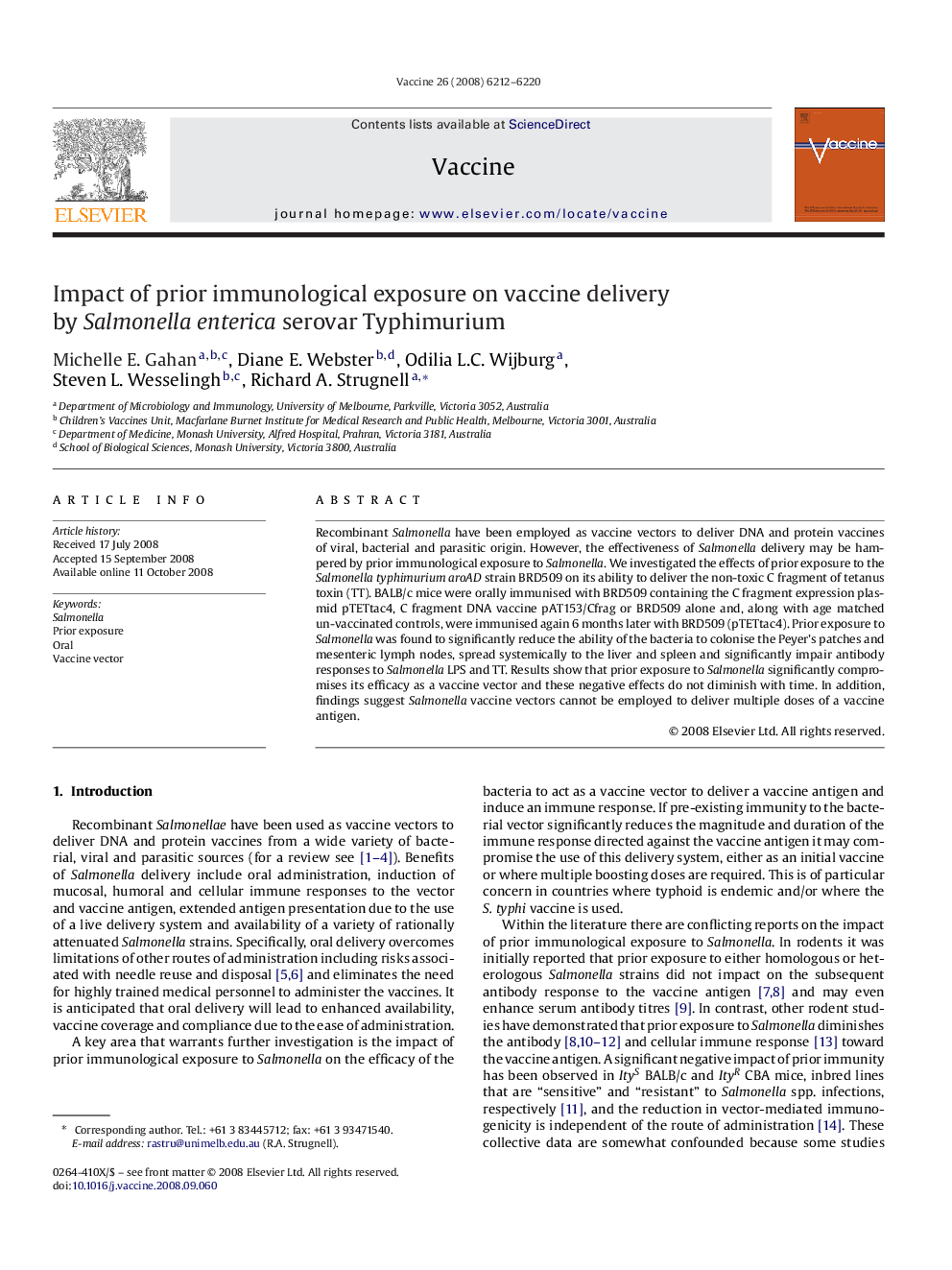| Article ID | Journal | Published Year | Pages | File Type |
|---|---|---|---|---|
| 2406554 | Vaccine | 2008 | 9 Pages |
Recombinant Salmonella have been employed as vaccine vectors to deliver DNA and protein vaccines of viral, bacterial and parasitic origin. However, the effectiveness of Salmonella delivery may be hampered by prior immunological exposure to Salmonella. We investigated the effects of prior exposure to the SalmonellatyphimuriumaroAD strain BRD509 on its ability to deliver the non-toxic C fragment of tetanus toxin (TT). BALB/c mice were orally immunised with BRD509 containing the C fragment expression plasmid pTETtac4, C fragment DNA vaccine pAT153/Cfrag or BRD509 alone and, along with age matched un-vaccinated controls, were immunised again 6 months later with BRD509 (pTETtac4). Prior exposure to Salmonella was found to significantly reduce the ability of the bacteria to colonise the Peyer’s patches and mesenteric lymph nodes, spread systemically to the liver and spleen and significantly impair antibody responses to Salmonella LPS and TT. Results show that prior exposure to Salmonella significantly compromises its efficacy as a vaccine vector and these negative effects do not diminish with time. In addition, findings suggest Salmonella vaccine vectors cannot be employed to deliver multiple doses of a vaccine antigen.
